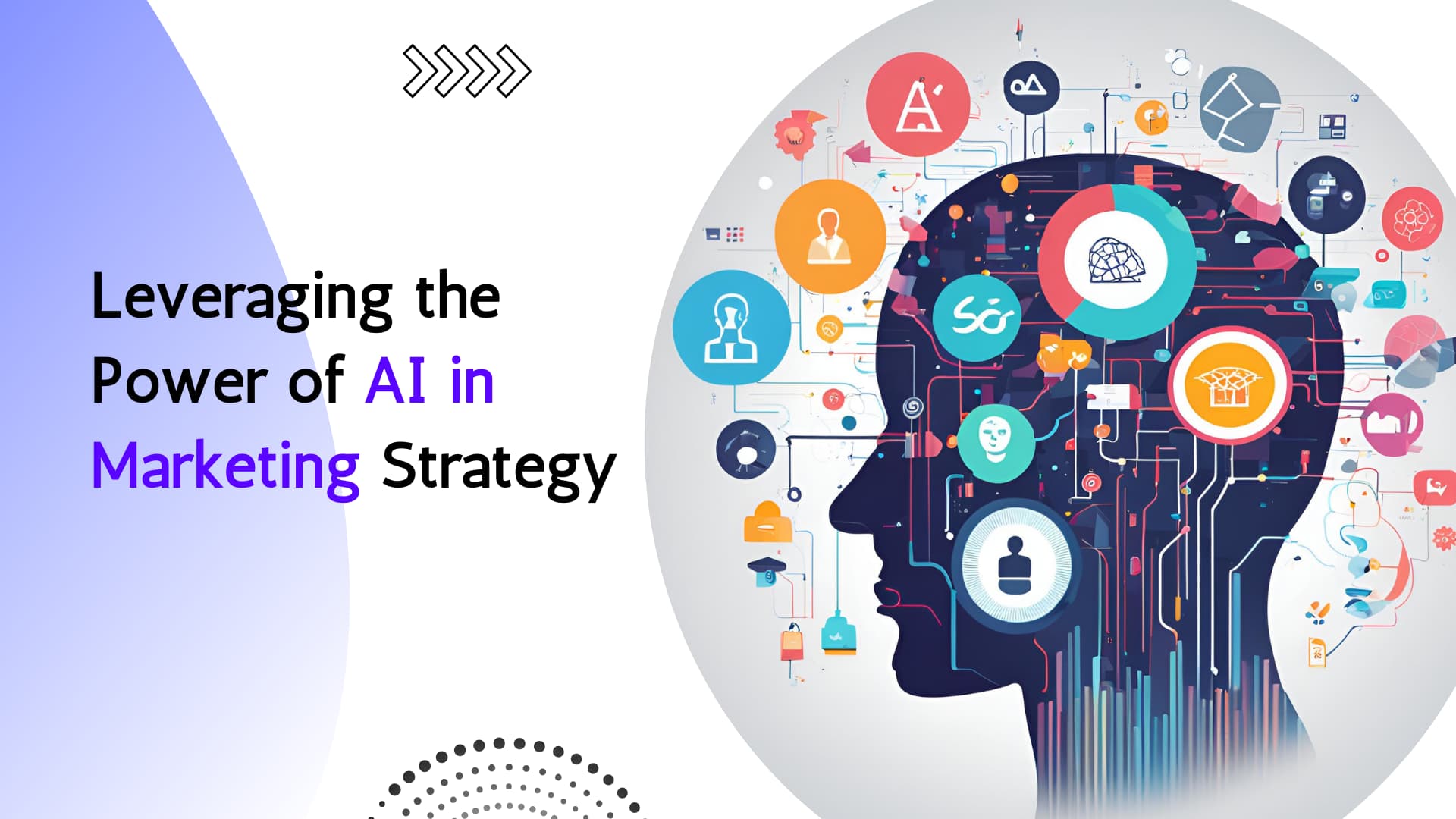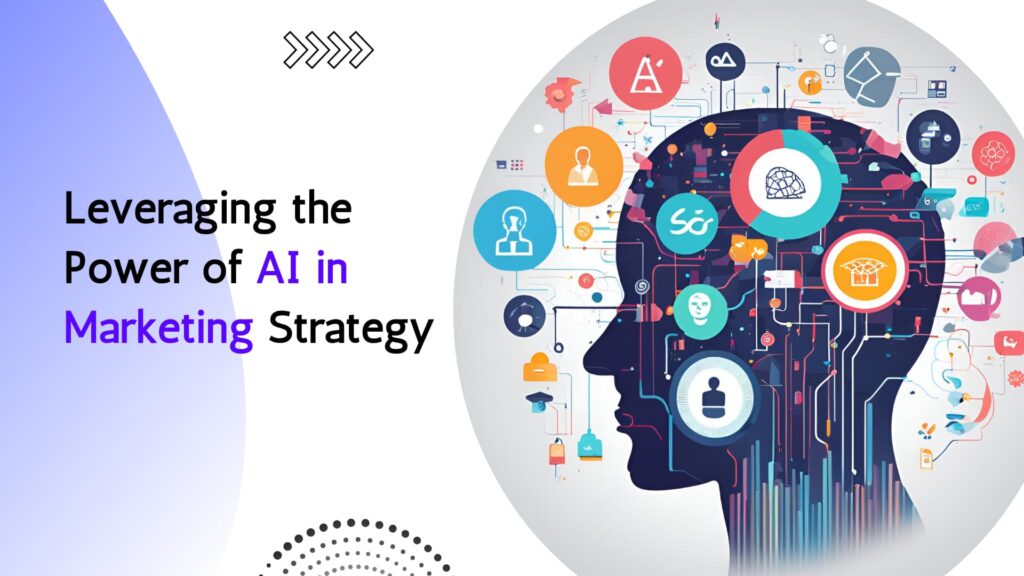Table of Contents
- 1 Key Takeaways
- 2
- 3 What Makes AI a Smart Choice for Marketing?
- 4
- 5 How AI Personalizes Customer Experiences
- 6
- 7 Boosting Campaign Performance With AI
- 8
- 9 AI and Content Creation: Efficiency Meets Creativity
- 10
- 11 Data, Privacy, and Ethics: What Marketers Should Consider
- 12
- 13 Overcoming Common Challenges of AI Marketing
- 14
- 15 Future Trends: Where AI in Marketing Is Headed
- 16
- 17 Practical Steps to Start Integrating AI Into Your Strategy
Key Takeaways
- Artificial intelligence (AI) helps marketers streamline workflows, personalize campaigns, and analyze data more efficiently.
- AI can boost ROI by optimizing budget allocation and improving targeting accuracy.
- Combining AI with human creativity delivers balanced, engaging marketing campaigns.
- Recent research highlights the ongoing rise and adoption of AI marketing tools across industries.
What Makes AI a Smart Choice for Marketing?
The marketing landscape has undergone a radical transformation in recent years, driven by the surge of artificial intelligence. Automation isn’t simply a convenient tool for contemporary marketers—it’s now a vital part of daily operations. Tasks that previously consumed hours, such as managing audience segments, qualifying leads, or scheduling multichannel posts, can now be executed with impressive speed and consistency by AI. AI-powered marketing solutions give modern marketing teams a competitive advantage by uncovering patterns in large and complex data sets that humans alone would overlook. One of the most compelling advantages of using AI in marketing is the ability to generate actionable insights on demand. Traditional data analysis methods could take days or weeks and often leave teams responding to outdated trends.
In contrast, today’s AI-powered platforms deliver real-time analytics and instantly flag any anomalies or unexpected shifts in consumer behavior. This dynamic feedback loop enables marketers to rapidly pivot campaigns, optimize content, and allocate resources more efficiently, driving significant improvements in outreach quality and operational agility. Organizations are discovering that with AI at their fingertips, they can keep pace with constantly evolving market dynamics, making smarter decisions faster than ever.
How AI Personalizes Customer Experiences
Perhaps nowhere is the value of AI in marketing more apparent than in personalizing customer experiences. Consumers now expect to be recognized and understood, and predictive personalization is fast becoming the norm. By integrating sophisticated machine learning models, brands can build highly responsive campaigns that dynamically react to each customer’s preferences and behavior in real time. AI harnesses every digital interaction to refine and improve future recommendations, whether a user is exploring products, making repeat purchases, or engaging with content across channels.
- Content Personalization: AI can analyze open rates, previous purchases, and even time spent on a site to craft messages tailored to individual interests and needs. This level of customization drastically increases email engagement and web conversions.
- Product Recommendations: Intelligent recommendation engines use a customer’s browsing history, demographic profile, and purchase patterns to suggest highly relevant products. As a result, brands boost sales and deepen customer loyalty.
- Conversational AI: Modern consumers expect instant assistance. AI-powered chatbots and virtual agents answer questions, resolve issues, and even upsell relevant products—all while collecting valuable feedback. These tools make personalized attention scalable.
Companies utilizing tailored experiences consistently achieve higher engagement, see reduced churn, and generate more repeat business. This shows just how deeply
personalization has become intertwined with successful digital marketing.
Boosting Campaign Performance With AI
Achieving peak performance for digital campaigns has always required a blend of timing, resource allocation, and messaging precision. AI enhances these efforts by running continuous tests and optimizing elements in real time—something manual processes cannot replicate. The ability to automate bid adjustments on digital ad platforms, fine-tune targeting parameters, and redistribute budgets on the fly drastically improves marketing efficiency.
Ad Spend Optimization: Marketers benefit from AI’s ability to automatically increase investment in high-performing ads while pausing or adjusting lower-performing ones, helping organizations do more with their budgets.
Predictive Analytics: AI reviews previous campaign data and forecasts which creative audience segments or channels will most likely succeed. This reduces risk and uncertainty, allowing for more confident marketing decisions.
Algorithm-Driven Decisions: By relying on strict data analysis rather than gut feelings, marketers can document improvements in conversion rates, reach, and cost per acquisition. This level of objectivity brings transparency and repeatability to campaign management.
The ability to measure, adapt, and improve in real-time means respectable ROI and the agility to act on opportunities as soon as they’re detected, transforming digital marketing from a routine operation into an ongoing process of innovation and refinement.
AI and Content Creation: Efficiency Meets Creativity
The digital content race can feel overwhelming for marketers under pressure to deliver fresh, original content across a growing number of channels. AI becomes a powerful creative partner, analyzing which topics and headlines generate the most engagement, suggesting powerful word choices, and even auto-generating draft blog posts or social updates. This technology is now foundational in brainstorming sessions, providing teams with data-driven ideas to experiment with and refine.
- Generating Headlines & Posts: AI applications can analyze trending keywords, competitor strategies, and engagement metrics and propose headlines or hashtags that have a history of sparking interest among targeted audiences.
- Content Curation: Instead of sifting through mountains of news and articles for inspiration, marketers can task AI bots to identify relevant market stories, social trends, and influencers, saving countless research hours and helping them remain timely.
However, successful content still requires a human touch. While AI expedites research and creation, it lacks intuition and brand persona. Human marketers add emotional resonance and creativity, ensuring all content consistently resonates with a brand’s audience and values.
Data, Privacy, and Ethics: What Marketers Should Consider
As marketers collect and analyze ever-larger consumer data pools, the ethical stakes have never been higher. Safeguarding data privacy becomes critical to maintaining trust and complying with rapidly changing regulations such as GDPR or CCPA. Using AI in marketing demands transparency about how and why personal data is used, as well as a proactive approach to communication and security.
- Transparency: Marketers should disclose their use of AI to process data or deliver personalized recommendations, letting customers know exactly what to expect.
- Compliance: Staying current with privacy laws is an ongoing challenge, but it is necessary. Marketers must partner with legal or compliance teams to safeguard customers and their brand reputations.
Establishing internal guidelines for AI usage, conducting regular data security audits, and prioritizing consumer consent all help build stronger relationships with audiences and minimize risk.
Overcoming Common Challenges of AI Marketing
While the benefits are powerful, implementing AI into marketing strategies presents genuine challenges. Organizations often face the twin barriers of securing a budget and managing the technical complexity of deploying AI systems. Integration with legacy systems and existing workflows can also be an obstacle, especially if in-house teams lack the necessary experience or training.
- Reskilling Workforce: Investments in ongoing training help marketing teams gain competence and confidence when using new AI platforms and tools.
- Continuous Learning: As AI marketing technologies evolve, strategies must remain agile. Marketers need to monitor trends and adapt their approach for ongoing relevance.
Organizations prioritizing a learning and experimentation culture are best positioned to reap the rewards and minimize friction associated with change.
Future Trends: Where AI in Marketing Is Headed
Looking ahead, the role of AI in marketing will only grow as machine learning, automation, and predictive analytics continue to advance. Emerging trends point toward generative AI capable of creating headline images and full-fledged campaign concepts. As these technologies become more accessible, the benchmark for customer experience will rise accordingly. Companies that pair data-driven insights with human creativity are set to raise the bar for audience engagement. The pace of industry adoption is accelerating. Over 80% of industry leaders have implemented or are expanding their use of AI tools, citing notable gains in ROI, personalization, and customer retention. Every major consumer brand now vies for an AI edge to differentiate itself and cultivate lasting customer relationships. The future will reward those who act quickly and decisively, integrating the power of AI with the nuances of human intuition to create marketing that is both effective and meaningful.
Practical Steps to Start Integrating AI Into Your Strategy
Getting started with AI in marketing does not require a complete overhaul. Small steps can yield significant results. Marketers new to the space should begin by identifying bottlenecks or repetitive tasks in their workflow—such as automating email targeting, scheduling, or reporting—and piloting a single AI-powered tool to assess potential benefits.
Start Small: Select manageable projects and build a business case based on clear improvements, whether in reduced person-hours, increased conversions, or improved targeting.
Measure Results: Consistently track KPIs and use built-in analytics to quantify return on investment and inform further adoption.
Expand Gradually: Use lessons from pilot programs to outline a roadmap for wider AI integration and scaling capabilities as your team’s expertise grows and tech infrastructure evolves.
As AI takes on a larger share of marketing decision-making and execution, staying open to experimentation and new technology will provide a crucial advantage. Early adopters of AI-powered marketing solutions gain the flexibility and insight needed to stay ahead in a consumer-driven, data-saturated world, proving that the future of marketing will be shaped by those who embrace the partnership of machine intelligence and human ingenuity.





